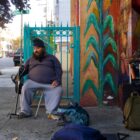Even in the midst of a recession, the Bay Area remains the leading biotechnology hub. But other areas both in the U.S. and worldwide are making serious efforts to catch up. Can the area hold its position in the next 20 years? That was the question at a recent panel discussion at the University of California, San Francisco hosted by Xconomy.
Industry representatives seemed optimistic about biotech’s future locally, in synergy with Silicon Valley’s information technology companies. In addition, the abundance of laid-off pharmaceutical professionals gives them a chance to hire top-notch people for individual projects.
“We have access to incredible talent and experience,” said Peter Hirth, co-founder of Plexxikon, a Berkeley-based pharmaceutical company. “These are the senior people who’ve been there and done that and know exactly what needs to be done.”
Genomic Health co-founder Randy Scott agreed about the Bay Area’s massive talent pool. He said that Genomic Health has been successful in hiring “tons of young, bright people.”
“I can’t think of any place I’d like to be hiring in at the moment, even with the cost of the Bay Area,” Scott said. “I would not want to compete against the Bay Area in the next 20 years.”
But not everyone was as confident. Jeff Bluestone, UCSF executive vice chancellor and provost, was worried about the local and national education system and about lower-level jobs moving to other areas. Bluestone said that the biotechnology community should figure out a way to maintain a sense of community in San Francisco.
“We need a mechanism by which we can provide not just a livable situation for everybody and an economy that works, but something that is inclusive,” Bluestone said.
He thinks that the area is at risk of losing out by failing to support diversity. “If we say that all we’re going to be are the high-end centers, we lose the manufacturing and we lose the innovation that happens by being full-service,” he added.
Bluestone is not alone in his concerns. As the Public Press reported last week, City College of San Francisco students have a hard time getting into big biotech companies. In an interview with the Public Press, Laurence Clement, internship coordinator of the Bridge to Biotech program at City College, compared the current situation of biotech industry to the dotcom boom.
“When the dotcom boom arrived, nobody in the low-income neighborhoods benefited from it. Biotech is doing the same thing,” Clement said. “A lot of the biotech companies have good revenues but they are leaving out this entire San Francisco population.”
As far as science education goes, there is reason to worry, especially in California. The U.S. ranked 23rd in science and 31st in mathematics in the Organisation for Economic Co-operation and Development’s 2009 rankings of international secondary-education performance. Nationally, California ranks 46th both in fourth and eighth grade science skills according to the National Center for Education Statistics. With four states left out of the report, only Mississippi ranked worse than California.
This is why there are initiatives such as Bio-Community developed by BayBio, Northern California’s life-science association. The network supports science, technology, engineering and math education in under-resourced, grade 4-12 classrooms.
We will report on these initiatives during the spring.









